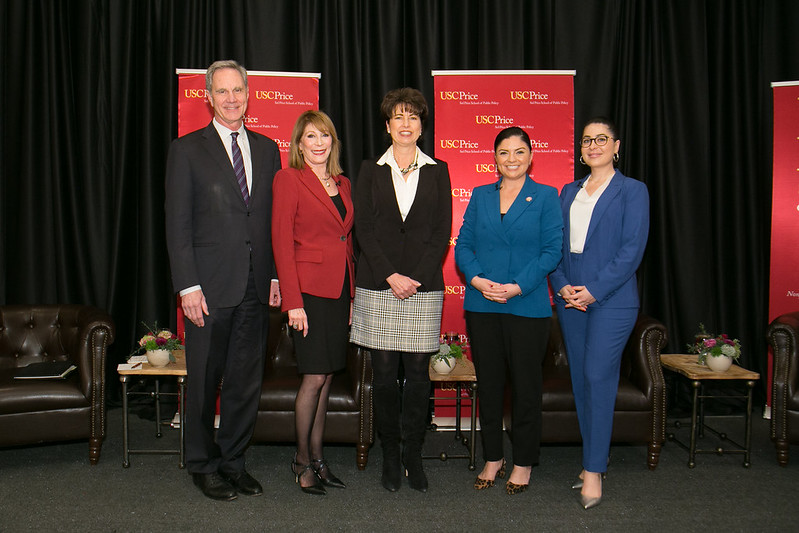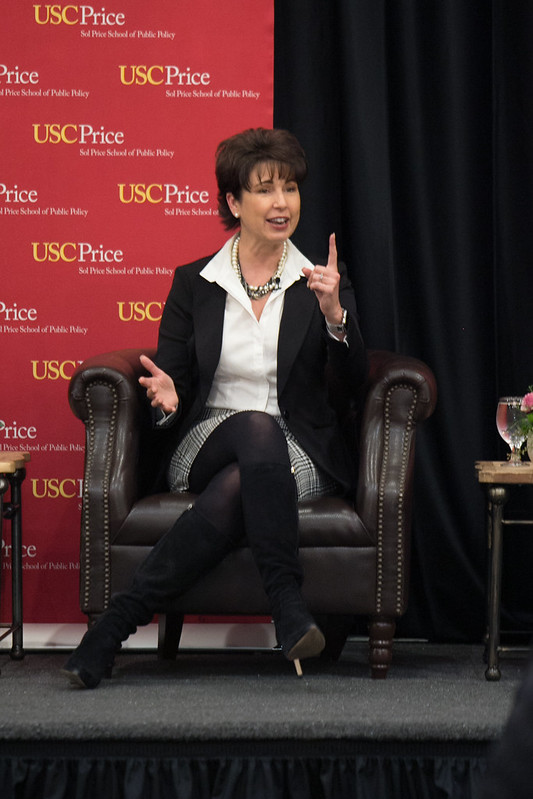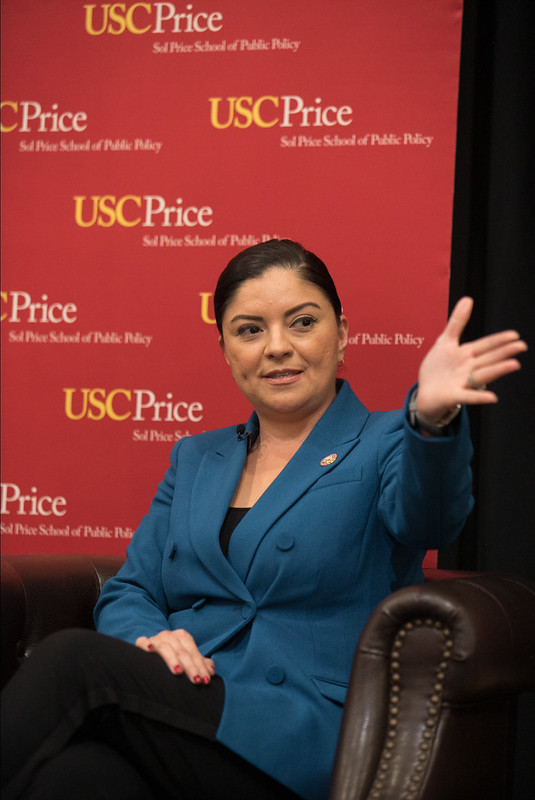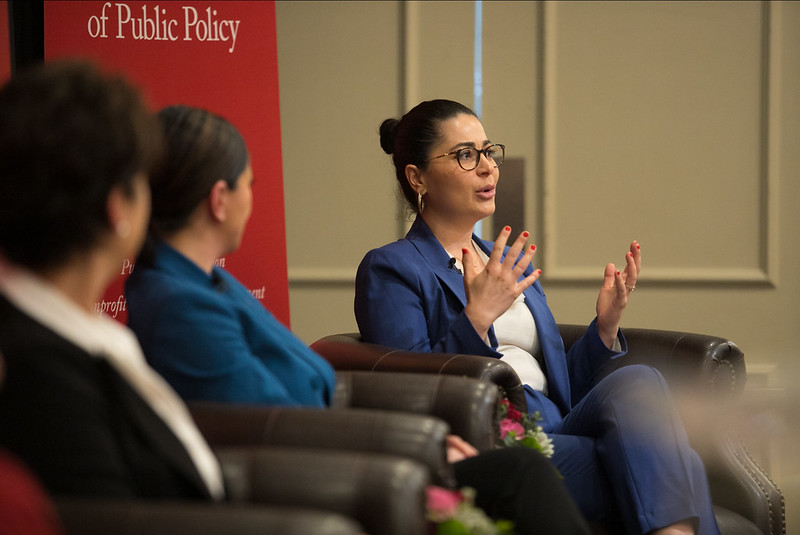USC Price event spotlights women leaders in public and nonprofit sectors

(Photograph by Tom Queally)
By Matthew Kredell
At the USC Price Dean’s Speaker Series, “Women in Leadership,” three dynamic leaders from the public and nonprofit sectors spoke of their career journeys, how they navigated male-dominated fields and the unique traits women bring to public service. The February event was sponsored by the Athenian Society, the Price School’s philanthropic support group.
Dean Jack H. Knott opened the event by recognizing the importance of gender diversity among USC Price’s vice deans and associate deans. “[Women leaders] are really important in terms of the values of the Price School,” Knott said. “We are deeply invested in diversity, equity, inclusion and, for me, it is important that these are not just words. These need to be things that we live and do.”
Introduced by Associate Dean Regina Nordahl, who is retiring in March after 30 years with USC, the speakers included California state Sen. Lena Gonzalez, California state Sen. Connie Leyva and Natalie Samarjian, president and CEO of Coro Southern California. USC Price professor Carol Geffner, who directs the Executive Master of Leadership program, moderated the discussion.
Leyva, who chairs the California Legislative Women’s Caucus, said that there are now 38 women in the state legislature, a historic high. However, with 120 members of the legislature, it’s still not representative of women’s 50% makeup of the state population. As chair, she seeks to help all women in the legislature succeed – and she would like to see women support each other more in general.“We as women need to do a much better job of working together,” Leyva said. “There’s a reason there’s an ‘old boys’ club,’ because they work together. There’s no old women’s club. We have to stop putting each other down for the way we look. We have to stop talking about the way we dress. Every woman has value. We all bring something to the table.”

Gonzalez, in her first term in the Senate, says she tried too hard to prove herself at the beginning.
“Being a woman, when I first started in public service, I overworked myself,” Gonzalez said. “I thought I had to keep working harder and harder. I think we often put too much burden to work hard on ourselves.”
Samarjian’s journey as an Armenian-American who escaped civil war in Lebanon and was undocumented until her mid-teens led her to working for Coro, a nonprofit that trains civic leaders.
“Many of us think that leadership is a destination work, but it’s not,” Samarjian said. “You have to really roll up your sleeves, take risks and allow one step to unfold the next. I think one of the tough lessons of leadership is that you need to have the patience to allow the journey to unfold itself. I think with that is holding space for risk and innovation, not just for ourselves but our team.”

(Photo by Tom Queally)
Leyva sees unique attributes that make women valuable in leadership roles. “I think that women are natural organizers,” Leyva said. “I think that we’re very good at getting people together, and sometimes we’ll go in with a different tone or a different tact.”
The conversation also highlighted the work women in leadership tackle in addition to their careers. Gonzalez noted that she identifies on social media as a mother and wife before a Senator.
“First and foremost is the mom part,” Gonzalez said. “I’m always a mom at the end of the day.”
Leyva agreed that women play many roles, and she thinks that makes it easier for women not to wrap up their whole identity around their job.
“I think men are a little more tied to their title – it makes them who they are – and they have a harder time retiring,” Leyva said. “When they walk away from that job, they feel they no longer are who they are. But we’re always still going to be a mom, a wife, a caregiver to our parents.”
One USC Price student attending the event asked about setting goals heading into her career with graduation coming up.

(Photo by Tom Queally)
Gonzalez expressed that nothing in her career really went to plan, starting with having a child at 19, but it still came together.
“I would just say leave it open,” Gonzalez said. “The more you put pressure on yourself, the more you feel guilty when you don’t hit those marks.”
Samarjian added that she remembers this time right before graduation as being one of the most anxiety-driven period of her life because she too wanted to plan everything out.
“The best advice I got at that moment in my life was a mentor who said to plan the next year or two, and allow that year or two to plan the year or two after that,” Samarjian said. “It was really sound advice that I would anchor myself to every time I felt the need to plan 10 or 15 years ahead.”